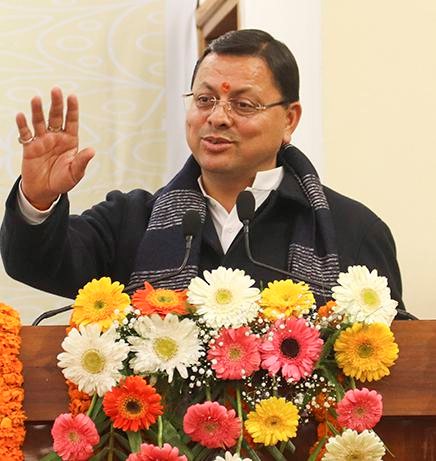Uniform Civil Code (UCC) in Uttarakhand

- 28 Jan 2025
In News:
On January 27, 2025, Uttarakhand became the first Indian state to formally implement the Uniform Civil Code (UCC) after Independence. The legislation was passed by the State Assembly on February 7, 2024, and received Presidential assent on March 12, 2024.
Historical Background:
- A five-member expert committee chaired by Justice (Retd.) Ranjana Prakash Desai was constituted to draft the UCC report.
- The committee submitted its report on October 18, 2023.
- Though initially scheduled for implementation by November 9, 2024 (Uttarakhand's Foundation Day), the rollout was delayed due to administrative preparedness and staff training.
Scope and Applicability:
- Applicable to all residents of Uttarakhand, including those in live-in relationships outside the state.
- Scheduled Tribes (as per Article 342) and migrated natives have been exempted to safeguard cultural rights.
Key Provisions of the UCC:
1. Marriage, Divorce & Live-in Relationships
- Legal marriage age: 21 years (men), 18 years (women).
- Mandatory registration of marriages, divorces, and live-in relationships.
- Prohibited practices: Triple talaq, halala, iddat, polygamy, and child marriage.
- Live-in Relationships:
- Mandatory registration for couples aged 21 and above.
- Parental consent required if under 21.
- Termination of live-in relationships requires mutual consent.
- Mandatory reporting of pregnancy within 30 days of childbirth.
- Landlords cannot deny housing to registered live-in couples.
2. Inheritance & Property Rights
- Equal inheritance rights for sons and daughters.
- Children born to live-in couples recognized as legitimate, eligible for inheritance.
3. Wills and Succession
- Wills can be:
- Submitted online.
- Uploaded as handwritten/typed documents.
- Recorded as a 3-minute video.
Digital Infrastructure – UCC Portal (ucc.uk.gov.in):
- Aadhaar-based verification for authenticity.
- AI-based multilingual translation in 22 Indian languages.
- Tatkal service for expedited registrations with a nominal fee.
- Integrated with 13+ departments, including police, civic bodies, and courts.
- Disaster recovery systems and cloud-based architecture ensure secure data management.
- Access to:
- Online registration of marriages, divorces, live-in relationships.
- Upload and registration of wills.
- Grievance redressal and appeal mechanisms.
Administrative Framework:
- Village Panchayat Development Officers appointed as sub-registrars in rural areas.
- Common Service Centres (CSCs) enabled to facilitate registration, especially in remote and mountainous areas.
- Registration applications processed within 15 days, or 3 days in emergencies.
- Appeals must be filed within 30 days of rejection, resolved within 60 days.
Penalties:
- Initial warnings for non-compliance.
- Fines imposed for repeated violations.
Significance:
- The UCC aims to promote gender equality, legal uniformity, and women's empowerment.
- Represents a constitutional vision under Article 44, reinforcing the idea of a common civil law for all citizens.
- Seen as a potential model for other states in India.
